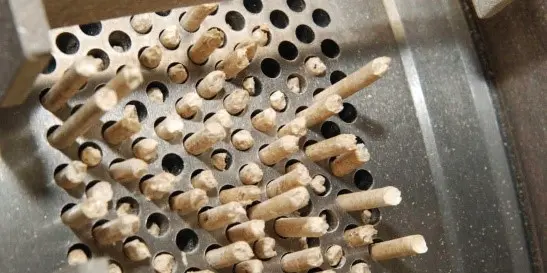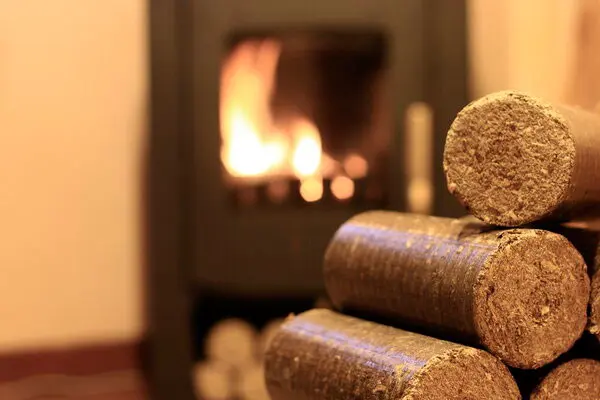Pellets and briquettes are a benefit of production
If you wish to produce compressed biofuel from wood sawdust, sunflower husks, flax processing waste, grain crops, etc., options such as briquettes and pellets are available to choose from. However, the best solution will be to focus on creating one type of product. So, which is more profitable, making pellets or fuel briquettes?
Aspects of pellet production in industry
According to the types of waste generated in production, the pellets created are classified into the following categories:
- High quality (DIN+ standard);
- Industrial
The first option is accompanied by the production of white pellets, which include a small amount of ash. This can be achieved using the raw material of woodworking waste without bark. One of the most common sales methods is the sale in bags of up to 25 kg. When the method used in the enterprise does not include cleaning of the bark or the owner faces the goal of processing convex boards with bark and low-quality chips, the businessman needs to think about the production of industrial pellets and briquettes. Industrial pellets have found their application in the form of solid fuel, if the composition contains small amounts of ash, and are also needed for domestic purposes, such as hygienic filler for cat litter.
Fuel briquettes – production features and advantages
Briquettes made using the PB-48 briquetting press have become widespread. Their production is much cheaper than pellets. The product can be used in any ovens, boilers and fireplaces that are not equipped with special burners. The PB-48 briquetting press allows you to create fuel briquettes that have the following advantages:
- Ease of use;
- Do not spark and do not shoot when burning;
- Saving storage space;
- Moisture resistance;
- High heat output.
Ready-made briquettes are popular both in the domestic market and outside of Ukraine. The main advantage of this type of biofuel is the possibility of using wood waste of almost any quality for its production. The advantage of using pressed material is that its density is twice that of wood. Such biofuel will require half the storage space. The temperature during pressing stimulates the melting of fuel briquettes, which ensures their strength and facilitates their convenient transportation. In addition, the PB-48 briquetting press creates biofuel without binding substances. Gluing is ensured due to natural legin contained in the composition of raw materials.
Pellets and briquettes are a benefit of production


